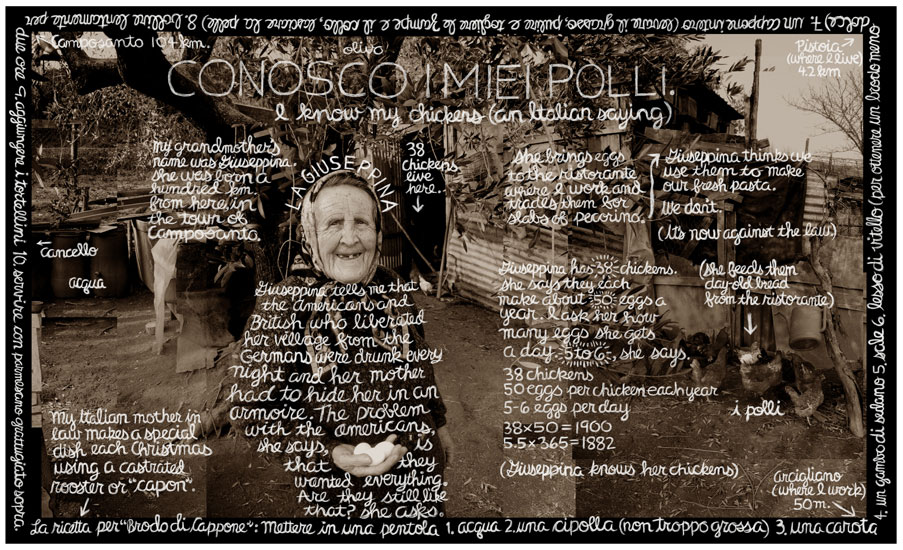For the last two courses, I’ve used images from Douglas Gayeton‘s book ‘Slow: Life in Tuscany‘ as a way to describe how to analyze an image. For some reason, I asked students to take a picture and analyze it, but I didn’t press them to do ape this method as an exercise. I should have. Next time. I also did not make the connection that he is the same artist I use later in the semester, when talking about the fictional (?), second life videoblog of ‘Molotov Alva‘ (which is airing on HBO). I find his work to be very, very effective. I think that this, plus a podcast exercise that students completed this week, will really make the next class better.

For anyone reading this who doesn’t know it–I teach a Media, Technology and Sociology course, which takes the idea of using M&T seriously as a set of sociological tools. For anyone who believes that such ‘alternative media’ for sociological purposes should take a look at what Mark C. Taylor (one of my all-time favorite books) wrote in a recent Op-Ed on ‘The End of the University as We Know it’ (and a critical response from the Chronicle: ‘No More Drivel from the New York Times‘), wherein his fourth recommendation for higher ed is:
Transform the traditional dissertation. In the arts and humanities, where looming cutbacks will be most devastating, there is no longer a market for books modeled on the medieval dissertation, with more footnotes than text. As financial pressures on university presses continue to mount, publication of dissertations, and with it scholarly certification, is almost impossible. (The average university press print run of a dissertation that has been converted into a book is less than 500, and sales are usually considerably lower.) For many years, I have taught undergraduate courses in which students do not write traditional papers but develop analytic treatments in formats from hypertext and Web sites to films and video games. Graduate students should likewise be encouraged to produce “theses” in alternative formats.
